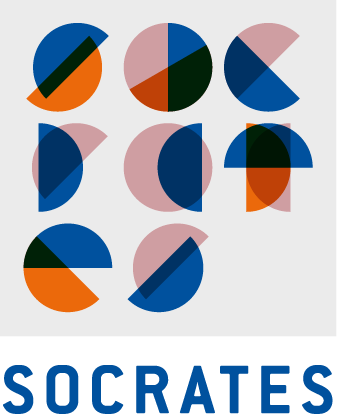The SOCRATES group proudly marks the completion of its successful first year, celebrating a period of remarkable achievements and growth. Established in October 2023, the group has rapidly become a prominent platform for intellectual exchange on the contemporary issues concerning trust in science. Starting out with bare offices in July 2023, we are very pleased that SOCRATES has truly become a Centre and is full of life, both in terms of its location in Lange Laube 32 and in terms of the philosophical work that has taken place in the last twelve months.
Highlights of the first year include five workshops
Throughout the year, we hosted a series of enlightening events and activities. These include five workshops involving in-depth discussions in areas such as the role of biases in science and indigenous knowledges with a focus on the trustworthiness of science. We welcomed scholars from all over the world: junior and senior philosophers focussing on topics related to SOCRATES, including the role of models in science and the trust issues that arise from their use, as well as a group of indigenous scholars and members of the International Science Council. We are especially happy that we succeeded in foregrounding the interdisciplinary character of SOCRATES via our workshops, and are thankful to participants from all over the world and across disciplines who contributed to our events.
In addition, our weekly SOCRATES Seminar provided our members with deep insights into the philosophical premises relevant to trust in science, including the dynamics of trust, trustworthiness, and social values. We are thankful to all our speakers for the interactive discussions fostering a rich exchange of ideas and perspectives on managing consensus, controversy, and uncertainty within scientific discourse.
Fellows as the centre’s backbone
Throughout the year, SOCRATES had the honour of welcoming its first cohorts of fellows, all of whom are experts in manifold themes surrounding trust in science and hail from various disciplines:
Summer semester 2024
- Matthew J Brown (Southern Illinois University)
- Craig Callender (University of California, San Diego)
- Katherine Furman (University of Liverpool)
- Marco Grix (University of Auckland)
- Friederike Hendriks (Technical University of Braunschweig)
- Gustav Kessel (Royal Society of New Zealand)
- Inkeri Koskinen (University of Helsinki)
- Boaz Miller (Zefat Academic College)
- Joe Roussos (Institute for Futures Studies)
- Jacob Stegenga (University of Cambridge)
- Krushil Watene (University of Auckland)
Winter semester 2023/24
- Viktoria Cologna (Harvard University)
- Robert Evans (Cardiff University)
- Katherine Furman (University of Liverpool)
- Zinhle Mncube (University of Massachusetts, Amherst)
- Joe Roussos (Institute for Futures Studies)
- Jacob Stegenga (University of Cambridge)
Their contributions significantly enriched our discussions and broadened our intellectual horizons, and we are thankful to each one of them for their visit and their insights. Please see here for further information about our past and current fellows. Of course, the success of SOCRATES’ inaugural year would not have been possible without the dedication of its members and the support of the German Research Foundation (DFG).
Publications and outlook
The group is also very happy to announce that numerous publications by its members have already resulted from its exchanges. For a comprehensive list of our publications, please visit Publications and Presentations.
SOCRATES looks ahead with much joy to its second year in fostering the investigation of Social Credibility and Trustworthiness of Expert Knowledge and Science-Based Information. New fellows are due to arrive in September, and a call for postdoctoral fellowships as well as more events are already in the pipeline. Stay tuned!














